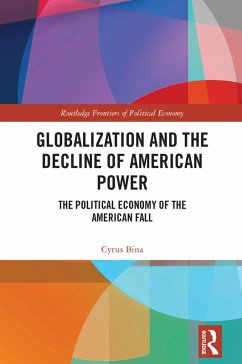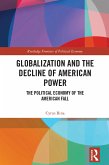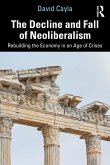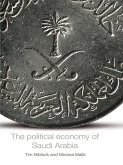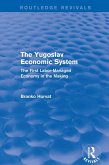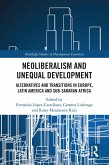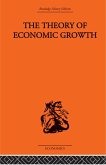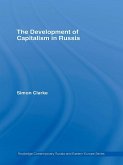There is a stark contrast between the present epoch and the postwar era of American hegemony (1945-1979) in which the United States, at least outside of the Soviet sphere of influence, largely managed the international economy and reigned over international politics and relations. Drawing on both theoretical and empirical evidence, this book shows that the era of globalization unleashed forces-social, political, and economic-which broke down the status quo of American hegemony. Author Cyrus Bina also establishes that since the Iranian Revolution (1979), US involvement throughout the Middle East, in Iraq, Afghanistan, Libya, Syria, Yemen, and now notably in Ukraine has been motivated by the freefall of American hegemony and an attempt to get it back by direct or indirect military force. Bina utilizes these contexts for wider analysis and critique of a number of theories commonly used to analyze economy, polity, geopolitical, and dynamics of crisis and social change in capitalism.
This book will be of great interest to students, academics, and policymakers on subjects of Economics, International Relations, Global Studies, International Political Economy, Political Geography, Sociology, and postwar History.
Dieser Download kann aus rechtlichen Gründen nur mit Rechnungsadresse in A, B, BG, CY, CZ, D, DK, EW, E, FIN, F, GR, HR, H, IRL, I, LT, L, LR, M, NL, PL, P, R, S, SLO, SK ausgeliefert werden.
'Cyrus Bina's Globalization and the Decline of American Power is the culmination of a lifetime of sustained radical scholarship, reflecting as only Bina can do -- often controversially -- breathtaking reach, incisive analytical polemics, and a rare intellectual ambition: Bina offers an explanation of declining US power that goes beneath the surface, linking it to economic globalization and thereby to the historical process of the expansion of capital' - Sanjay Reddy, Associated Professor and Chair of Economics, The New School for Social Research
'As a fellow traveler in the tradition of classical political economy, I have long been an admirer of Cyrus Bina's work starting with his early and original contribution to the theory of oil rent. It therefore comes as no surprise that his latest book is also brilliantly insightful in its capacity to explain the roots of our world's multifaceted crises embedded in what appears to be the twilight of American Empire. This book is a must-read for students, scholars, and lay readers at all stages in their careers. Providing an alternative to both "monopoly capitalist" and postmodernist leftist analyses, this book is theoretically grounded in the classical Marxian framework with its very different analysis of power. The strength of this book lies in its capacity to weave in theoretical insights into very concrete political events as they unfolded over the post Second World War period. This abstract theory and political history nexus is the basis of a scholarly book that is a tour de force. I could not recommend this book more highly, especially to those who would strongly disagree with Bina's analytical framework.' - Jamee K. Moudud, Professor of Economics, Sarah Lawrence College and Board Member, Association for the Promotion of Political Economy and the Law

